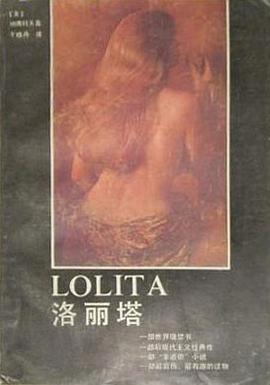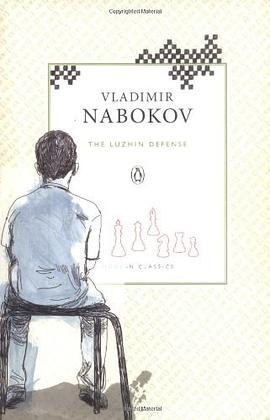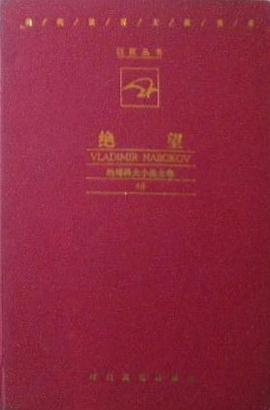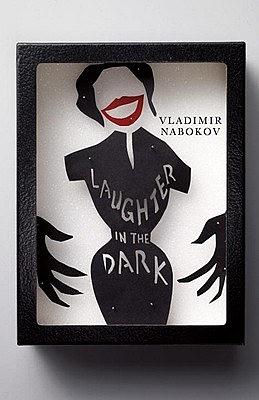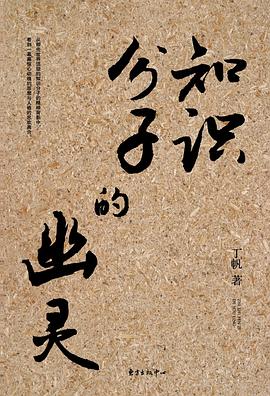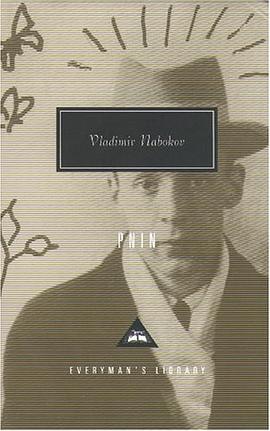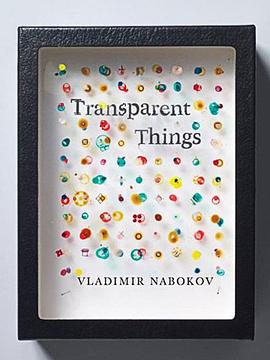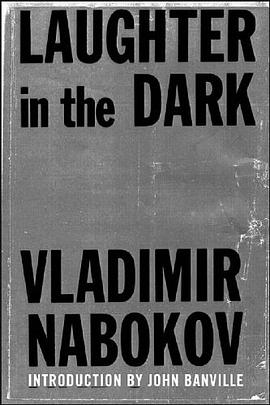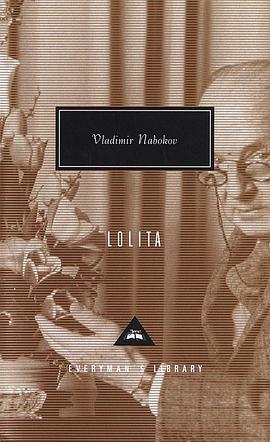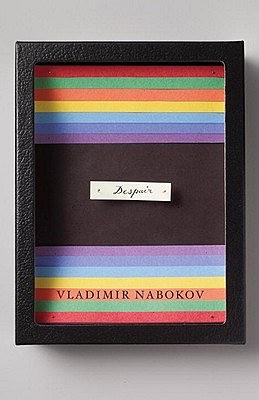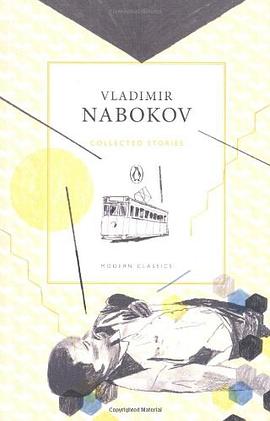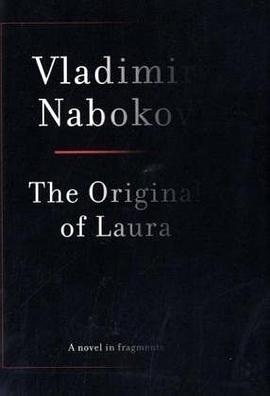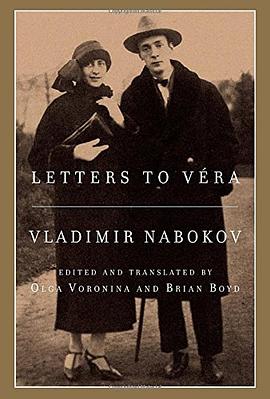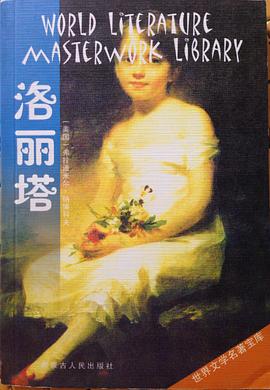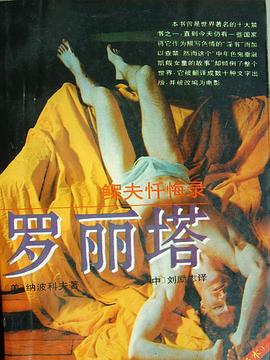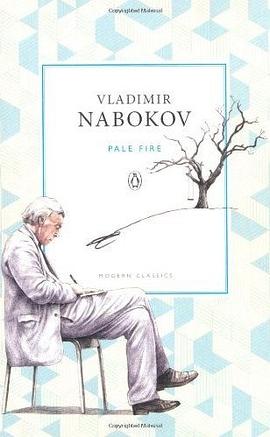

具体描述
Book Description
The urbane authority that Vladimir Nabokov brought to every word he ever wrote, and the ironic amusement he cultivated in response to being uprooted and politically exiled twice in his life, never found fuller expression than in Pale Fire published in 1962 after the critical and popular success of Lolita had made him an international literary figure.
An ingeniously constructed parody of detective fiction and learned commentary, Pale Fire offers a cornucopia of deceptive pleasures, at the center of which is a 999-line poem written by the literary genius John Shade just before his death. Surrounding the poem is a foreword and commentary by the demented scholar Charles Kinbote, who interweaves adoring literary analysis with the fantastical tale of an assassin from the land of Zembla in pursuit of a deposed king. Brilliantly constructed and wildly inventive, this darkly witty novel of suspense, literary one-upmanship, and political intrigue achieves that rarest of things in literature–perfect tragicomic balance.
With an Introduction by Richard Rorty
作者简介
Vladimir Vladimirovich Nabokov was born on April 23, 1899, in St. Petersburg, Russia. The Nabokovs were known for their high culture and commitment to public service, and the elder Nabokov was an outspoken opponent of antisemitism and one of the leaders of the opposition party, the Kadets. In 1919, following the Bolshevik revolution, he took his family into exile. Four years later he was shot and killed at a political rally in Berlin while trying to shield the speaker from right-wing assassins.
The Nabokov household was trilingual, and as a child Nabokov was already reading Wells, Poe, Browning, Keats, Flaubert, Verlaine, Rimbaud, Tolstoy, and Chekhov, alongside the popular entertainments of Sir Arthur Conan Doyle and Jules Verne. As a young man, he studied Slavic and romance languages at Trinity College, Cambridge, taking his honors degree in 1922. For the next eighteen years he lived in Berlin and Paris, writing prolifically in Russian under the pseudonym Sirin and supporting himself through translations, lessons in English and tennis, and by composing the first crossword puzzles in Russian. In 1925 he married Vera Slonim, with whom he had one child, a son, Dmitri.
Having already fled Russia and Germany, Nabokov became a refugee once more in 1940, when he was forced to leave France for the United States. There he taught at Wellesley, Harvard, and Cornell. He also gave up writing in Russian and began composing fiction in English. In his afterword to Lolita he claimed: "My private tragedy, which cannot, and indeed should not, be anybody's concern, is that I had to abandon my natural idiom, my untrammeled, rich, and infinitely docile Russian tongue for a second-rate brand of English, devoid of any of those apparatuses–the baffling mirror, the black velvet backdrop, the implied associations and traditions–which the native illusionist, frac-tails flying, can magically use to transcend the heritage in his own way." [p. 317] Yet Nabokov's American period saw the creation of what are arguably his greatest works, Bend Sinister (1947), Lolita (1955), Pnin (1957), and Pale Fire (1962), as well as the translation of his earlier Russian novels into English. He also undertook English translations of works by Lermontov and Pushkin and wrote several books of criticism. Vladimir Nabokov died in Montreux, Switzerland, in 1977.
目录信息
读后感
The respective impacts and penetrations of Marxism and Freudism being talked of; I said: "The worst of two false doctrines is always that which is harder to eraticate." Shade: "No, Charlie, there are simpler criteria: Marxism needs a dictator, and a dictato...
评分The respective impacts and penetrations of Marxism and Freudism being talked of; I said: "The worst of two false doctrines is always that which is harder to eraticate." Shade: "No, Charlie, there are simpler criteria: Marxism needs a dictator, and a dictato...
评分用户评价
这部作品的魅力在于它的“回响”。它不是一个单一的音符,而是一串经过复杂算法处理的、不断自我指涉的回声。你读到第一部分,然后带着对它的理解去看第二部分,紧接着,第二部分又彻底推翻了你对第一部分的全部假设。这种结构上的递归性,令人叹为观止,同时也让人感到一种智力上的眩晕。它构建了一个封闭的宇宙,在这个宇宙里,诗歌、注解、传记的片段互相缠绕,构成了一个无法逃脱的循环。它成功地营造了一种氛围:一种既古典又极度现代的,关于被“困住”的感觉。你感觉自己像被困在那个想象中的诗人遗留下来的图书馆里,周围是无数本关于他生平的矛盾记录,而真正的“他”,却永远躲在那些文字的缝隙里,对着你的努力窃笑。这本书的精妙之处在于,它让你爱上了这种被愚弄的感觉,甚至开始主动寻找下一个可能让你走入歧途的线索。
评分这本**《苍白之火》**,说实话,初读时我真有点摸不着头绪,仿佛手里握着一把上了锁的古董钥匙,却怎么也找不到对应的箱子。它不是那种让你一翻开就能立刻沉浸其中的故事,它更像一块层层叠叠的琥珀,需要你耐心地用时间和理解去慢慢地、小心翼翼地剥开外壳。作者的叙事手法极其狡猾,甚至可以说是一种文学上的恶作剧。你以为你正在跟随一个清晰的线索前进,结果发现那线索本身就是个陷阱,是一个精心编织的幻象。我花了很长时间才意识到,真正有趣的部分,恰恰在于文本本身的结构和那些不和谐的“噪音”。那些看似多余的脚注、那些突兀插入的评论,它们比正文本身更富含信息量。它强迫你从一个被动的读者变成一个主动的侦探,去审视每一个词语,去怀疑每一个断言。这阅读体验是相当耗费心力的,但一旦你开始享受这种智力上的拉锯战,那种“啊哈!”的顿悟感,是其他小说难以给予的。它探讨了身份、模仿、以及艺术的本质——到底什么是原创,什么是阐释?这本书像一面棱镜,将光线折射成无数个碎片,你得自己去拼凑出那个模糊的中心。
评分这本书的阅读体验,更像是观看一场精心编排的舞台剧,但灯光却总是打在布景的背面和幕后的道具上。作者的笔触是如此的精确,以至于你能在脑海中清晰地勾勒出那些晦涩难懂的诗句和那些偏执的注解者们所处的空旷房间。它的基调是疏离的,带着一种高高在上的知识分子式的嘲讽,但隐藏在那份清冷之下,却涌动着一股近乎狂热的、对完美艺术的渴望和痛苦。每一次深入,我都会被那种对语言的极端控制感所震慑。这不仅仅是技巧的展示,这是一种对读者心智的极限测试。你必须接受,你所读到的,很可能是一个骗局,一个被刻意扭曲的镜像。但恰恰是这个“扭曲”,才暴露出了隐藏在正常叙事之下的、更深层次的真相。这是一本需要耐心的书,不是因为它的篇幅,而是因为它要求你进行长期的、深入的“心智共振”。
评分坦白讲,这本书挑战了我对叙事“完整性”的基本要求。如果说传统小说提供的是一座建造精美的房子,那么《苍白之火》提供给你的,就是一堆被精心挑选和编号的建筑材料,以及一份由一位心智不稳定的工程师撰写的、充满矛盾的蓝图。你被赋予了所有的元素,但最终搭建出的结构,却永远悬而未决。这种不确定性,起初令人沮丧,但慢慢地,我开始欣赏它。它迫使读者放下对“标准结局”的执念,转而关注过程的美感——关注语言如何承载意义,以及意义如何因为角度的不同而发生几何级的变化。这本书对“评论性”的探讨达到了一个近乎哲学的高度。它像是在问:一个作品的真正价值,究竟在于它自身的表达,还是在于后世的解读和评论所赋予它的生命?那些围绕核心文本的文字,才是真正的战场,在那里,身份、嫉妒、艺术野心,所有的人类情感被放大到了病态的程度。
评分我得说,这本书的文字密度实在惊人,几乎没有一个形容词是多余的,但同时,它又充满了古典的、近乎傲慢的华丽。它的行文节奏非常奇特,时而像一首节奏明快的十四行诗,精确、工整,充满了韵律感;时而又像一位上了年纪的学者,在喋喋不休地进行一场冗长而充满偏执的独白。我特别喜欢那种在看似严肃的学术讨论中,突然插入的、带着尖酸刻薄和歇斯底里情绪的转折。这种风格上的剧烈跳跃,让整本书保持了一种令人不安的张力。它不是在讲述一个故事,它更像是在解剖一个“故事”是如何被构建、被误读、最终被遗忘的过程。每次读到那些看似无关紧要的引文和旁注,我都会停下来,反复揣摩作者到底想借这些“次要文本”来暗示什么。这哪里是阅读,这简直是在进行一场高强度的文本考古挖掘,你得不断地问自己:谁在说话?他/她是否可信?他/她是否在故意误导我?这本书就像一个迷宫,但它的墙壁是用语言本身砌成的,每当你以为走到出口,发现出口其实是另一个入口。
评分Very hard-to-read post-modernist novel. Incredibly inspiring
评分这个叙述者真是学渣我看过中最讨厌的了。commentary部分一开始会给我有点分裂的感觉,再想想就觉得按Kinbote的人设来说,这么分裂就对了。其实说到底,不是很喜欢,但是就是觉得蛮不错的欸。
评分一本表面上讲述暗杀实则关于艺术的书
评分"Why do you have two copies of this book?" "Which one? Oh Pale Fire... Pale Fire is not a book."
评分最伟大的小说!!!A Jack-in-the-box, a Faberge gem, a clockwork toy, a chess problem!
相关图书
本站所有内容均为互联网搜索引擎提供的公开搜索信息,本站不存储任何数据与内容,任何内容与数据均与本站无关,如有需要请联系相关搜索引擎包括但不限于百度,google,bing,sogou 等
© 2026 book.quotespace.org All Rights Reserved. 小美书屋 版权所有

